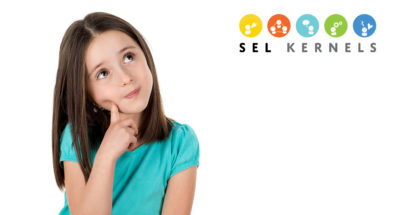
Notes to Self: An SEL Kernels Practice for Second Grade
Students take time to reflect on positive experiences, attributes, and/or aspirations by writing or drawing about themselves.

Students take time to reflect on positive experiences, attributes, and/or aspirations by writing or drawing about themselves.
Students will:
Note: Click here to download and print a card version of this practice that can be added to the other SEL Kernels practices to make an easy-to-use hand-held collection. See the Brain Games pack for additional activities.
This practice is part of the SEL Kernels project developed by the EASEL Lab at Harvard University.
Having a positive attitude towards learning actually helps students’ brains work better. Research shows that the hippocampus, a brain area linked with memory and learning, is significantly more active when students employ a positive attitude towards a subject.
In addition, having a growth mindset (being focused on improvement) leads to better academic outcomes. Middle school students with a growth mindset earned higher math grades over time compared to students with a fixed mindset (focus on judgment).
Generally, having a positive mindset is strongly linked to better life outcomes. For example, gratitude is strongly and consistently associated with greater happiness. People who practice gratitude feel more positive emotions, relish good experiences, improve their physical health, deal with adversity, and build strong relationships.
An optimistic growth mindset is a powerful tool for helping children protect against and navigate negative feelings to successfully accomplish tasks and get along with others. When children feel confident in their abilities and optimistic about their chances of learning, growing, and overcoming obstacles, they are likely to build stronger relationships and be more positive.
For example, if students believe that they and their peers can develop their skills, talents, and behavior through hard work, they are better able to manage feelings of frustration and discouragement in order to solve interpersonal conflicts or persevere through challenging situations.

Are you ready to build a kinder, happier school where everyone belongs? Join Greater Good Educators! Explore the science of well-being in a supportive community of educators from around the world. Registration is now open for the 2025-2026 school year!
Comments